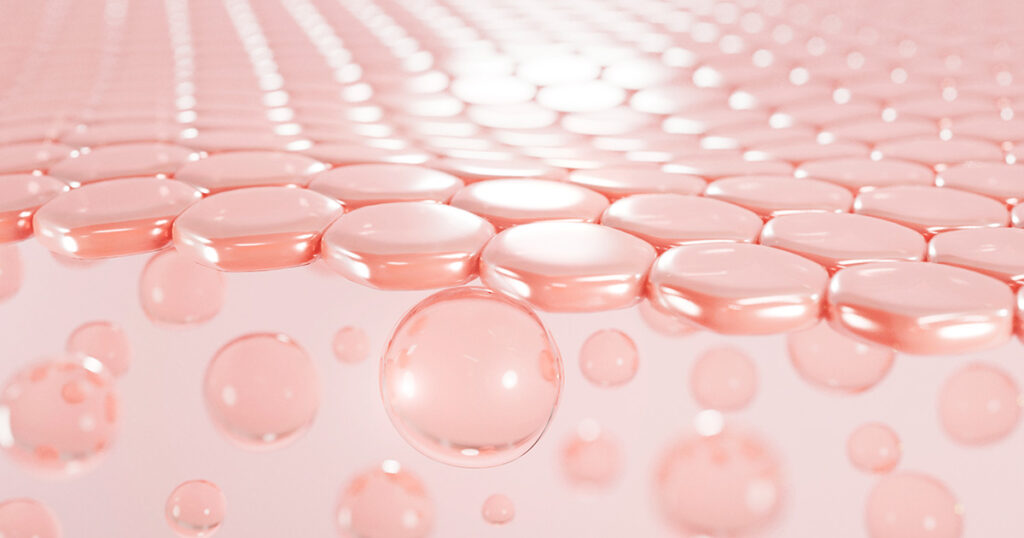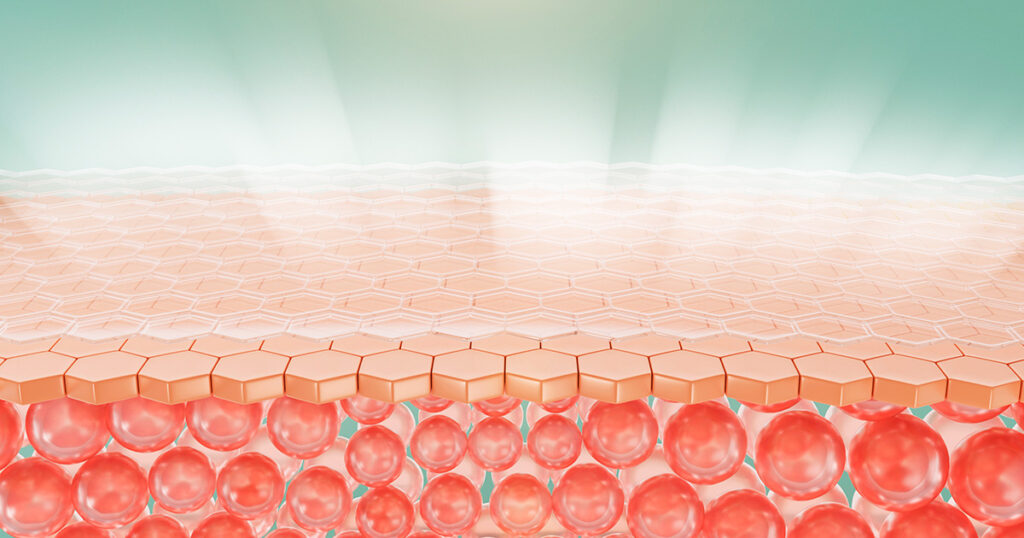The skin acts as a barrier between the body and the outside world. It protects the body from harmful substances, helps to regulate body temperature, and eliminates water and waste products. The skin also helps to produce vitamin D, which is essential for bone health. But can you absorb nutrients through your skin?

The skin comprises three main layers: the epidermis, the dermis, and the subcutaneous layer.
The epidermis is the outermost layer of the skin. It comprises cells called keratinocytes, which produce a protein called keratin. Keratin provides a waterproof barrier that protects the body from harmful substances and helps to regulate body temperature.
The dermis is the middle layer of the skin. It contains blood vessels, nerves, hair follicles, and sweat glands. The dermis provides support and protection for the epidermis.
The subcutaneous layer is the innermost layer of the skin. It consists of fat and connective tissue that attach the skin to the underlying muscles and bones.
The skin also contains special cells called melanocytes, which produce the pigment that gives skin its color. Melanin helps protect the skin from sun damage by ultraviolet (UV) rays.
There are many different nutrients, but they are broadly divided into two categories: macronutrients and micronutrients. Macronutrients are nutrients that the body needs in large quantities, such as proteins, carbohydrates, and fats. Micronutrients are nutrients that the body needs in small amounts, such as vitamins and minerals. Both types of nutrients are essential for good health.
Macronutrients provide energy, growth, and repair. They can be found in food sources such as meats, grains, dairy products, and oils. The body needs to consume macronutrients in relatively large amounts to function properly.
The body needs to consume micronutrients in relatively small amounts to function properly. On the other hand, micronutrients help with metabolism, cell growth, and other vital processes. They can be found in food sources such as fruits, vegetables, nuts, and seeds.
While both types of nutrients are essential for good health, macronutrients are needed in larger quantities than micronutrients because the body uses macronutrients for energy. But does skin absorb nutrients?

Does skin absorb nutrients? The skin is a significant organ in the body, and vitamin absorption through the skin is possible. Vitamins are essential nutrients that the body needs to function correctly. They appear in many foods, but sometimes they need to be supplemented through diet or supplementation.
Many factors contribute to vitamin absorption through the skin, including:
- The type of vitamin
- The concentration of the vitamin
- The area of skin exposed
- The duration of exposure
- The health of the skin
Vitamin A, vitamin D, and vitamin E are some vitamins that the skin can absorb. Vitamin A is essential for vision, immune function, and cell growth. Vitamin D is vital for bone health and calcium absorption. Vitamin E is an antioxidant that helps protect cells from damage. Topical nutritional supplements are the best way to ensure vitamin absorption through the skin.
When taking care of your skin, what you put in your body is just as important as what you put on it. Nourishing your skin from the inside out with the proper nutrients can make a big difference in overall complexion and skin health.
There are a few essential nutrients that are particularly beneficial for the skin. These include omega-3 fatty acids, vitamin C, and vitamin E.
Omega-3 fatty acids are essential for maintaining healthy cell membranes and help keep moisture and harmful toxins and irritants out. This moisture retention helps to protect the skin and prevent dryness, inflammation, and other skin problems.
Vitamin C is a powerful antioxidant that helps to protect the skin from damage caused by free radicals. It also helps to promote collagen production, which is essential for keeping the skin firm and elastic.
Vitamin E is another antioxidant that is beneficial for the skin. It can help to protect against sun damage and can also help to heal wounds and scars.
Foods rich in omega-3 fatty acids include salmon, walnuts, flaxseeds, and chia seeds. Vitamin C can be found in citrus fruits, tomatoes, bell peppers, broccoli, and leafy greens. Vitamin E is found in nuts, seeds, olives, and avocados. Getting enough of these nutrients in your diet can go a long way toward keeping your skin healthy and looking its best.
In addition to eating a healthy diet, you can also use topical products that contain these nutrients. Look for products that list them as active ingredients. You can also take supplements if you feel you are not getting enough nutrients in your diet.